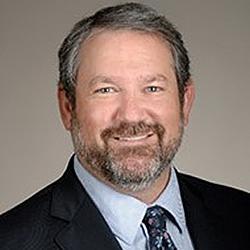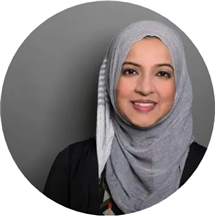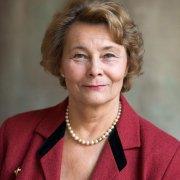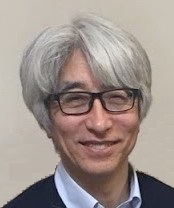Sessions
Neuroadaptive Addiction Therapies
Neuroadaptive addiction therapies represent a cutting-edge approach in addiction treatment, focusing on modifying and retraining the brain’s neural circuits affected by substance use. These therapies combine neuroscience insights, cognitive behavioral strategies, and neurofeedback techniques to help patients regain control over compulsive behaviors. By targeting specific brain pathways, neuroadaptive interventions aim to reduce cravings, improve emotional regulation, and restore cognitive function. Advances in neuroimaging and brain-mapping technologies allow clinicians to monitor real-time changes, enhancing the precision of treatments. The integration of personalized therapy plans based on individual neurobiology ensures more effective recovery outcomes. Neuroadaptive therapies also incorporate motivational support, mindfulness techniques, and lifestyle adjustments, creating a holistic framework for long-term abstinence. By understanding the brain’s plasticity and the neurobiological underpinnings of addiction, these approaches can significantly reduce relapse rates. Research continues to explore combining neurostimulation methods, such as transcranial magnetic stimulation (TMS), with behavioral interventions, offering new pathways for patients resistant to traditional therapies. The ultimate goal of neuroadaptive addiction therapies is to provide a science-driven, patient-centered treatment model that aligns biological, psychological, and social dimensions of addiction recovery.
Precision Pharmacology in Addiction Treatment
Precision pharmacology in addiction treatment emphasizes personalized medication strategies tailored to an individual’s genetic, metabolic, and physiological profile. Traditional pharmacological interventions often rely on standardized dosing, which may not address patient variability in drug response or susceptibility to side effects. Precision approaches utilize pharmacogenomic testing, metabolic profiling, and biomarker analysis to determine the optimal medication type, dose, and duration for each patient. This strategy improves treatment efficacy, reduces adverse effects, and supports long-term recovery outcomes. Medications may include opioid agonists, antagonists, or partial agonists for opioid use disorder, as well as agents targeting alcohol or stimulant dependence. Combined with behavioral therapies, precision pharmacology enhances adherence, reduces relapse risk, and addresses co-occurring psychiatric disorders. Research in precision pharmacology increasingly focuses on integrating digital health tools to track patient responses, adjust regimens dynamically, and ensure medication safety. By aligning pharmacotherapy with individual biological and clinical characteristics, precision pharmacology represents a paradigm shift toward more effective, patient-centered addiction care.
Digital Recovery & Tele-Addiction Interventions
Digital recovery and tele-addiction interventions are revolutionizing access to addiction care by providing remote, technology-driven support. These interventions include teletherapy, app-based monitoring, online support groups, and virtual recovery coaching. They are designed to maintain treatment continuity, especially for individuals in underserved areas or with mobility constraints. Digital platforms can deliver cognitive-behavioral therapy, motivational interviewing, and relapse prevention strategies in a flexible, user-friendly format. Integration with wearable devices allows real-time tracking of physiological and behavioral markers, offering personalized feedback and early relapse detection. Tele-addiction interventions also enable family involvement, peer support, and virtual community engagement, fostering a supportive recovery environment. Evidence indicates that digital recovery solutions improve adherence, engagement, and long-term outcomes by combining convenience with tailored therapeutic content. Gamification, AI-driven predictive tools, and interactive modules enhance user engagement and provide insights into behavioral trends. Digital interventions are particularly valuable in bridging gaps between clinical appointments, ensuring continuous care. By leveraging technology, these solutions extend the reach of effective addiction treatment, promote self-management, and support sustained behavioral change, making recovery more accessible, scalable, and personalized.
Behavioral Neuroscience of Addiction
Behavioral neuroscience explores the biological mechanisms underlying addictive behaviors, emphasizing the interaction between neural circuitry, neurotransmitter systems, and environmental influences. This field investigates how changes in the mesolimbic dopamine system, prefrontal cortex, and amygdala contribute to reward sensitivity, impulsivity, and compulsive behaviors associated with addiction. Understanding these mechanisms enables clinicians to develop targeted interventions that modulate brain function and behavioral outcomes. Research integrates animal models, neuroimaging, and cognitive-behavioral paradigms to elucidate addiction pathways. Insights from behavioral neuroscience guide the development of pharmacological and non-pharmacological treatments, including cognitive training, neurofeedback, and behavioral therapy, to restore adaptive functioning. By identifying biomarkers of vulnerability, resilience, and recovery potential, behavioral neuroscience informs personalized treatment approaches. These approaches consider not only substance-specific effects but also comorbid psychiatric conditions and social determinants of health. Advances in this area highlight the importance of translating laboratory findings into clinical practice to improve treatment efficacy and reduce relapse risk. Behavioral neuroscience continues to drive innovation in addiction therapy by bridging the gap between brain science, psychological interventions, and real-world recovery strategies, fostering a holistic understanding of addictive disorders.
Psychopharmacology & Novel Therapeutic Agents
Psychopharmacology in addiction focuses on the development and application of novel therapeutic agents to target neurotransmitter dysregulation, craving, withdrawal, and relapse. New compounds aim to modulate dopaminergic, glutamatergic, and GABAergic pathways implicated in addictive behaviors. Emerging therapies include long-acting formulations, combination medications, and receptor-specific modulators designed to enhance efficacy while minimizing side effects. Personalized psychopharmacology integrates genetic testing and metabolic profiling to tailor treatments to individual patient needs. Clinical trials increasingly evaluate novel agents alongside behavioral therapies to maximize recovery outcomes. Advanced drug delivery systems, such as implantable devices and nanocarriers, offer sustained medication release and improved adherence. Integration with digital monitoring tools ensures real-time feedback and safety oversight. Psychopharmacology research is expanding into non-substance behavioral addictions, exploring medications that target impulse control, compulsive behaviors, and neuroplasticity. By advancing evidence-based pharmacological strategies, clinicians can complement psychological interventions, improve treatment retention, and reduce relapse rates, offering a more comprehensive approach to addiction management.
Cognitive-Behavioral & Mindfulness-Based Therapies
Cognitive-behavioral and mindfulness-based therapies combine evidence-based psychological interventions to address addictive behaviors and underlying cognitive distortions. Cognitive-behavioral therapy (CBT) focuses on identifying maladaptive thought patterns, improving coping skills, and promoting behavioral change, while mindfulness practices enhance emotional regulation, self-awareness, and stress management. Together, these approaches target triggers, cravings, and relapse risk, supporting long-term recovery. Therapy is often structured into individual or group sessions, integrating psychoeducation, behavioral rehearsal, and mindfulness exercises. Technology-assisted delivery through apps, online platforms, and telehealth improves accessibility and engagement. These therapies are adaptable to diverse populations, including adolescents, adults, and individuals with co-occurring mental health disorders. Research demonstrates that integrating CBT with mindfulness interventions strengthens neuroplasticity, reduces compulsive behaviors, and improves quality of life. By combining cognitive restructuring with present-moment awareness, patients develop resilience and self-efficacy, enhancing their ability to maintain abstinence. This integrative approach also addresses emotional dysregulation, anxiety, and depression, commonly associated with addiction, offering a holistic framework for sustained recovery and overall mental well-being.
Genetic & Epigenetic Influences on Addiction
Genetic and epigenetic research in addiction explores how inherited and environmentally influenced modifications impact susceptibility, progression, and treatment response. Genetic factors, such as variations in dopamine receptor genes, modulate reward sensitivity and vulnerability to substance use disorders. Epigenetic changes, including DNA methylation and histone modification, reflect environmental exposures, stress, and drug effects, influencing gene expression without altering DNA sequences. Understanding these mechanisms enables personalized interventions that consider individual risk profiles. Pharmacogenomic strategies optimize medication choice and dosing, enhancing efficacy and minimizing side effects. Research also examines how epigenetic therapies and lifestyle interventions can reverse maladaptive gene expression patterns associated with addiction. Integration of genetic and epigenetic data with neuroimaging and behavioral assessments informs precision medicine approaches. Clinicians can identify high-risk individuals, tailor prevention strategies, and develop targeted treatment plans. Advancements in this field contribute to predictive modeling, early intervention, and relapse prevention, paving the way for biologically informed, individualized addiction care that accounts for both hereditary and environmental influences.
Neuroimaging & Brain Circuit Modulation
Neuroimaging provides critical insights into the structural and functional alterations in the brain associated with addiction, enabling precise mapping of reward pathways, executive control regions, and stress circuits. Techniques such as functional MRI, PET scans, and diffusion tensor imaging identify neural correlates of craving, impulsivity, and compulsive behaviors. These insights guide interventions targeting dysregulated circuits through behavioral therapy, neurofeedback, and neuromodulation techniques such as transcranial magnetic stimulation (TMS) and deep brain stimulation (DBS). Brain circuit modulation aims to restore normal activity patterns, reduce cravings, and improve cognitive control. Integration with pharmacological strategies allows synergistic treatment, enhancing neuroplasticity and facilitating recovery. Neuroimaging also supports early identification of individuals at high risk for addiction, monitoring treatment response, and predicting relapse. Advanced imaging analytics, including AI-based pattern recognition, enable personalized treatment planning and precision targeting. By combining imaging with clinical and behavioral data, clinicians can adopt an evidence-based, biologically informed approach that addresses the neural mechanisms underlying addictive behaviors, optimizing long-term recovery outcomes.
Substance Use Disorders: Opioids, Alcohol & Emerging Drugs
Substance use disorders (SUDs) encompass a range of substances, including opioids, alcohol, stimulants, and emerging synthetic drugs. Treatment approaches require a comprehensive understanding of pharmacological, behavioral, and social factors driving addiction. Opioid use disorder is addressed through medication-assisted therapy (MAT) using methadone, buprenorphine, or naltrexone alongside counseling. Alcohol use disorder interventions include detoxification, pharmacotherapy, and cognitive-behavioral support. Emerging synthetic drugs and designer substances pose challenges due to unpredictable potency, toxicity, and limited clinical guidance. Multimodal approaches combining detoxification, relapse prevention, behavioral therapy, and peer support are essential for effective management. Risk assessment, harm reduction strategies, and personalized care plans improve treatment adherence and outcomes. Co-occurring psychiatric conditions, social determinants, and environmental triggers are integrated into comprehensive care models. Public health policies and community-based interventions complement clinical management by addressing prevention, education, and early intervention. Continuous research and innovation in pharmacology, behavioral therapies, and monitoring technologies ensure adaptability to evolving patterns of substance misuse. Addressing SUDs requires an integrated, multidisciplinary approach to promote recovery, resilience, and long-term well-being.
Addiction Relapse Prevention & Long-Term Recovery
Relapse prevention strategies are critical in sustaining long-term recovery from addiction. Interventions focus on identifying triggers, developing coping mechanisms, and reinforcing behavioral and cognitive skills. Techniques include cognitive-behavioral therapy, motivational interviewing, mindfulness training, and contingency management. Personalized relapse prevention plans incorporate biological, psychological, and social factors, addressing cravings, stress, and environmental risks. Support systems such as peer groups, family engagement, and digital recovery platforms enhance adherence. Monitoring tools, wearable devices, and telehealth applications provide real-time feedback and early warning signals, allowing timely intervention. Integration of pharmacological support for withdrawal or craving management further strengthens relapse prevention. Emphasis is placed on resilience-building, life skills development, and psychosocial adaptation. Long-term recovery is supported by ongoing therapy, periodic assessment, and community-based programs that encourage healthy routines and social reintegration. Evidence indicates that combining behavioral, pharmacological, and technological interventions significantly reduces relapse risk. Sustaining abstinence requires continuous engagement, personalized strategies, and holistic support networks, ensuring recovery is maintained across the lifespan.
Integrative & Holistic Approaches to Addiction Care
Integrative addiction care emphasizes the combination of medical, psychological, and complementary therapies to address the multifaceted nature of addiction. Approaches include behavioral therapy, mindfulness, yoga, acupuncture, nutritional counseling, and exercise programs to promote physical and mental well-being. Holistic care focuses on restoring balance in neurobiological systems, emotional regulation, and social functioning. Personalized treatment plans integrate evidence-based interventions with patient preferences, ensuring engagement and adherence. Multidisciplinary teams collaborate to address co-occurring psychiatric conditions, physical health issues, and social determinants. Community-based support, family involvement, and peer networks enhance recovery outcomes. Holistic approaches also consider lifestyle modification, stress management, and skill-building to prevent relapse. Emerging evidence suggests integrative therapies improve neuroplasticity, emotional resilience, and overall quality of life. By combining conventional medical treatments with complementary modalities, holistic addiction care fosters a comprehensive recovery environment. Patients benefit from individualized, multidimensional support that addresses the biological, psychological, and social aspects of addiction, facilitating sustained recovery and improved life satisfaction.
Adolescent & Youth Addiction Interventions
Adolescent and youth addiction interventions address the unique developmental, social, and psychological factors influencing substance use in young populations. Early intervention programs focus on education, prevention, and resilience-building, targeting risk behaviors and environmental influences. Treatment plans are tailored to developmental stage, cognitive capacity, and social context, incorporating family involvement, school-based support, and peer engagement. Evidence-based therapies such as cognitive-behavioral therapy, motivational interviewing, and contingency management are adapted for youth. Digital platforms and mobile applications enhance engagement and provide accessible support. Interventions address co-occurring mental health issues, trauma, and stressors specific to adolescents. Programs emphasize skill development, emotional regulation, and adaptive coping strategies to prevent relapse and promote long-term recovery. Multidisciplinary teams, including psychologists, social workers, and medical professionals, collaborate to create individualized care plans. Early identification and targeted support reduce progression to chronic addiction. Research highlights the importance of personalized, developmentally appropriate interventions that consider family dynamics, peer influence, and neurobiological vulnerability. Adolescent-focused care combines prevention, treatment, and ongoing support to foster healthy developmental trajectories, resilience, and sustained recovery.
Technology-Enhanced Monitoring & AI in Addiction Therapy
Technology-enhanced monitoring and AI applications are transforming addiction care by enabling real-time tracking, predictive analytics, and personalized intervention. Wearable sensors, mobile applications, and smart devices collect data on physiological, behavioral, and environmental variables, offering insights into patient progress. AI algorithms analyze patterns, predict relapse risk, and recommend personalized therapy adjustments. Digital platforms facilitate remote therapy sessions, peer support, and adherence monitoring. Integration of AI-driven tools enhances decision-making for clinicians, improves treatment engagement, and ensures timely interventions. These technologies support medication adherence, behavioral tracking, and psychoeducation, creating a comprehensive care ecosystem. Predictive analytics allow early identification of high-risk situations, enabling preemptive therapeutic responses. Data-driven insights enhance understanding of treatment efficacy and patient-specific needs. Technology-enhanced interventions also support telehealth delivery, expanding access to underserved populations. By combining digital tools, AI, and traditional therapies, clinicians can provide adaptive, responsive, and personalized addiction care. Technology facilitates continuous monitoring, outcome evaluation, and long-term support, optimizing recovery trajectories and improving overall patient outcomes.
Co-occurring Mental Health Disorders & Dual Diagnosis
Co-occurring mental health disorders frequently accompany substance use disorders, necessitating integrated treatment approaches. Dual diagnosis care addresses psychiatric conditions such as depression, anxiety, bipolar disorder, and PTSD alongside addiction treatment. Comprehensive assessment ensures accurate diagnosis and treatment planning. Interventions combine pharmacotherapy, psychotherapy, cognitive-behavioral strategies, and psychoeducation. Coordinated care between psychiatrists, psychologists, and addiction specialists improves adherence and reduces relapse risk. Early intervention, continuous monitoring, and family engagement are critical for effective management. Treatment plans are individualized, considering symptom severity, comorbidity patterns, and social support networks. Integrated dual diagnosis programs emphasize skill-building, coping strategies, and relapse prevention. Research indicates that addressing both disorders concurrently leads to better long-term outcomes, improved mental health, and enhanced quality of life. Combining evidence-based pharmacological and behavioral interventions ensures holistic management of dual diagnosis patients, reducing hospitalization rates and promoting sustainable recovery.
Policy, Public Health & Community-Based Addiction Strategies
Policy, public health initiatives, and community-based strategies play a pivotal role in addiction prevention, treatment, and recovery. Effective policies regulate substance availability, promote harm reduction, and support evidence-based interventions. Public health campaigns increase awareness, reduce stigma, and encourage early intervention. Community-based programs provide accessible treatment, peer support, and social reintegration, addressing the environmental and societal factors influencing addiction. Collaborative efforts between government agencies, healthcare providers, and non-governmental organizations ensure coordinated care. Data-driven policies inform resource allocation, risk assessment, and targeted interventions. Harm reduction strategies, such as needle exchange programs, supervised consumption sites, and educational outreach, mitigate adverse outcomes. Community engagement fosters resilience, promotes social support, and facilitates recovery-oriented environments. Integrating clinical care with public health measures strengthens prevention efforts, enhances treatment access, and reduces societal burden. Policy development and community strategies complement individualized care, creating a comprehensive framework for effective addiction management and sustainable public health impact.
Market Analysis
The global market for addictive disorders and addiction therapy has witnessed substantial growth over the past decade, driven by rising prevalence of substance use disorders, increasing awareness of mental health, and advancements in treatment modalities. The global addiction treatment market, currently valued at approximately USD 9–10 billion, is expected to grow steadily over the next several years, with projections estimating a market size of over USD 16 billion by 2030, reflecting a compound annual growth rate (CAGR) of around 5–6%. This growth is fueled by both the increasing burden of addiction and the expansion of therapeutic options, encompassing pharmacological treatments, behavioral therapies, digital interventions, and rehabilitation services. One of the primary drivers of market expansion is the rising incidence of substance abuse, including opioids, alcohol, nicotine, and emerging synthetic drugs. The opioid epidemic, particularly in North America, has created significant demand for evidence-based interventions, including medication-assisted therapies (MAT), detox programs, and long-term rehabilitation. Similarly, alcohol and tobacco addiction remain pervasive across Europe and Asia, further contributing to the market’s expansion. Governments and non-governmental organizations are investing heavily in public health initiatives, education, and prevention campaigns, thereby enhancing awareness and increasing treatment uptake.
Technological innovation is playing a transformative role in addiction therapy. Digital health solutions, including tele-addiction platforms, remote counseling, AI-driven monitoring, and smartphone-based recovery applications, are improving accessibility, engagement, and adherence to treatment. The COVID-19 pandemic accelerated the adoption of these remote care models, highlighting their effectiveness and convenience for patients in underserved regions. Furthermore, advancements in psychopharmacology, genetic testing, and neurobehavioral research are facilitating more personalized and targeted approaches to addiction treatment. Regionally, North America currently dominates the market due to well-established healthcare infrastructure, higher awareness, and broad adoption of both traditional and modern therapeutic modalities. Europe is a mature market with strong regulatory frameworks and growing adoption of integrative rehabilitation approaches, whereas Asia-Pacific is experiencing rapid growth owing to rising prevalence, increased healthcare spending, and expanding rehabilitation infrastructure. Developing regions, including Latin America and Africa, offer potential growth opportunities as awareness campaigns and treatment accessibility improve. Despite strong growth, the market faces challenges. High treatment costs, limited insurance coverage, and socio-cultural stigma remain barriers to accessing care in many regions. Additionally, variability in regulatory standards, shortage of trained addiction specialists, and fragmented treatment infrastructure can hinder service delivery and market penetration. Privacy concerns, especially with digital and AI-enabled interventions, require robust safeguards to maintain patient trust and regulatory compliance. The future of addiction therapy lies in integrated, multi-modal, and personalized approaches. Combining behavioral therapy, pharmacology, digital therapeutics, and social support systems enhances long-term recovery and reduces relapse rates. Emerging opportunities include AI-driven predictive analytics, gamified recovery applications, remote monitoring, and population-specific interventions targeting adolescents, women, and high-risk occupational groups. Collaboration among healthcare providers, pharmaceutical companies, digital health startups, and policymakers is crucial to address unmet needs and deliver scalable, effective addiction care. In conclusion, the addiction therapy market is poised for steady growth, driven by increasing prevalence, technological innovation, and expanding awareness. While challenges exist, opportunities in personalized medicine, digital therapeutics, and global outreach can transform the landscape, making addiction treatment more accessible, effective, and sustainable worldwide.








